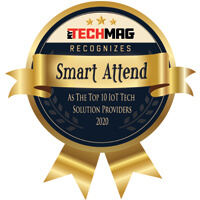
“We fill that gap. Our hardware and software platforms are architected on a scalable, agile platform.”
Technology is constantly evolving, and at an ever-quickening pace. The latest advancements in GPS, battery, bluetooth and cellular technologies, allow IoT companies to interconnect sensors, people, data, and processes and have them seamlessly communicate with each other.
California-based Procon Analytics has quickly grown into to a leading automotive IoT firm, lead by CEO Brian Boling and managing partner and Chief Technology Officer, Bill Cheney. These industry leaders have surrounded themselves with a formidable team of hardware and software experts as well as the industry’s finest sales team.
Both Boling and Cheney have been recognized as trailblazers in automotive telematics, inventors and authors of multiple IoT patents leveraging GPS technology. Today, Procon Analytics provides connected IoT solutions to its customers and strategic alliances through direct and indirect channels. Procon Analytics’ portfolio includes a suite of connected car products and services designed for franchise dealers, risk mitigation solutions to support the vehicle finance marketplace and other aftermarket products and solutions packaged for automotive retailers.
All of their solutions run on 4G wireless networks that give Procon Analytics the data bandwidth and network provider support, both now and into the foreseeable future. According to Cheney, hidden within the millions of miles of driver, automobile, and lifestyle data, there are depths to be explored. “Our technology can monitor temperatures, engine status, vehicle location, driver patterns and user preferences,” he said. “Procon Analytics’ technology connects to other sensor-driven applications like telephony, entertainment, smart homes and much more.”
He said that 24 hours a day, 7 days a week, vehicles generate data the likes of which the world has never seen. Every bit of data collected from every mile driven serves to deliver value for both retailers and users.
According to Cheney, automotive OEMs have traditionally focused on data analytics that drive manufacturing improvements – to build a better car and enhance their brands in the marketplace. They have been slow to actively participate in the customer life-cycle value chain, which improves profitability and growth within their franchise dealer networks. Simply put, automotive franchise dealers, and aftermarket retailers as well, lack practical tools to effectively connect with their customers both before and after the purchase.
“We fill that gap,” Cheney added. “Our hardware and software platforms are architected on a scalable, agile platform. This allows us to innovate and iterate new and customized solutions faster.
“We provide powerful data analytics to retailers that results in more vehicles sold, improved customer retention and satisfaction, more service business, and less employee turnover.”
Connected Dealer Services (CDS) is Procon Analytics’ dealer lifecycle management solution, designed for franchise and independent auto dealers. Its state-of-the-art connected car technology delivers tremendous value by employing GPS management software, which enables retailers to track inventory, manage loaners, prevent loss due to stolen vehicles, reduce costs, increase staff efficiency, and increase customer satisfaction.
Today, Procon Analytics’ business intelligence team is incubating new transformational concepts that will link intelligent companies together, to help them tap into their existing connected base of customers, build new lines of distributions, broaden their product offerings and enter new markets. The power of the IoT revolution lies in its connections. As connections grow, so will the utility of that connection.
Cheney notes that by connecting devices in “chains,” their technology and its related innovations can expand the utility, informational depth and power of each connection, with dynamic new revenue streams created just by “connecting the right links in the IoT chain.”
“So, wherever vehicles are,” Cheney said, “and wherever people live, we’ll be there to learn their preferences, connect them in smart cities, use personal assistants or autonomous cars, help them make better decisions, and get them where they want to be and when they want to be there. This is the real power of our connected car technology!”








